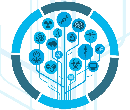Banca de QUALIFICAÇÃO: LORENA ALENCAR SOUSA
Uma banca de QUALIFICAÇÃO de MESTRADO foi cadastrada pelo programa.STUDENT : LORENA ALENCAR SOUSA
DATE: 18/09/2025
TIME: 16:00
LOCAL: Google Meet - https://meet.google.com/epo-asan-zji
TITLE:
ONCOLOGY DEMAND FORECASTING USING OFFLINE AND ONLINE MACHINE LEARNING PARADIGMS
KEY WORDS:
Demand forecasting. Machine learning. Hybrid modeling. Oncology. Public health.
PAGES: 88
BIG AREA: Ciências da Saúde
AREA: Medicina
SUMMARY:
Cancer represents one of the greatest global public health challenges, with significant impacts on mortality, morbidity, and healthcare system costs. In Brazil, the disease has a high incidence, accompanied by marked regional inequalities in access to diagnosis and treatment. In this context, forecasting the demand for oncology services becomes fundamental for strategic planning and the efficient management of healthcare resources. This dissertation proposed an innovative strategy for forecasting oncology demand using machine learning techniques, focusing on comparing offline and online modeling paradigms. Initially, a descriptive analysis of oncology care at a referral hospital was conducted, revealing a predominance of female patients, a higher proportion of elderly patients, and a strong reliance on public healthcare services. Next, a hybrid residual modeling approach was applied, using the Random Walk model as a reference. The predictions were corrected using supervised methods, including Linear Regression, Decision Tree, and Random Forest in the offline paradigm, as well as incremental algorithms in the online paradigm, SGDRegressor (with stochastic gradient descent), LinearRegression, HoeffdingTreeRegressor (incremental tree), and BaggingRegressor with multiple Hoeffding Trees. Partial results demonstrated that the Random Forest model, in the offline paradigm, performed best in terms of predictive accuracy, with lower mean squared error, mean absolute percentage error, and Theil's U, although with higher computational cost. In the online paradigm, the Hoeffding Tree model stood out for its time efficiency and low memory consumption, achieving competitive performance in certain scenarios. The comparative analysis revealed that both paradigms have specific advantages and limitations, suggesting that hybrid approaches are better suited to dynamic hospital settings. The implementation of the predictive system into the hospital's routine is underway, with technical alignment and staff training initiatives underway. This study contributes to strengthening evidence-based strategies for forecasting oncology demands, with the potential to improve resource allocation, reduce waste, and improve the quality of care provided to the population.
COMMITTEE MEMBERS:
Externo à Instituição - ANDRÉ FUJITA - USP
Interna - ESTELITA LIMA CANDIDO
Presidente - PAULO RENATO ALVES FIRMINO




